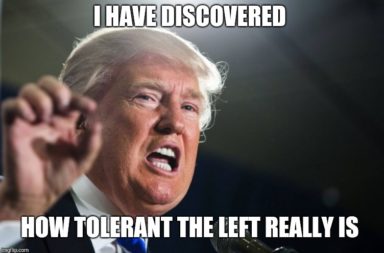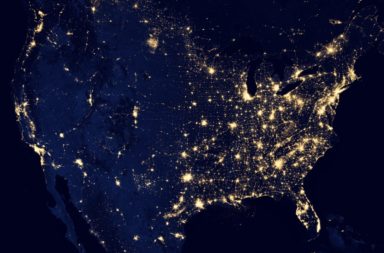Thomas Jefferson may have been the best read, most educated of the Founding Fathers. As befitted an educated man of the Enlightenment, Jefferson certainly adhered to the ideals of a classical liberal arts education. Science, philosophy, literature, history, politics, and the whole of human thought fell within his grasp and understanding. This diverse and broad education helped make him an effective statesman, and guided some of the fundamental ideals of our republic.
Today, Jefferson is long dead, and his libraries have a unique history all of their own. Today, untold numbers of books are available free online, and many more can be purchased. Print editions of books are readily available, and it is possible to build a highly diverse library that would leave even Jefferson astounded, and at a modest cost. The paradox is that while we are awash with the sum total of human knowledge readily available at little or no cost, our society is increasingly ignorant.
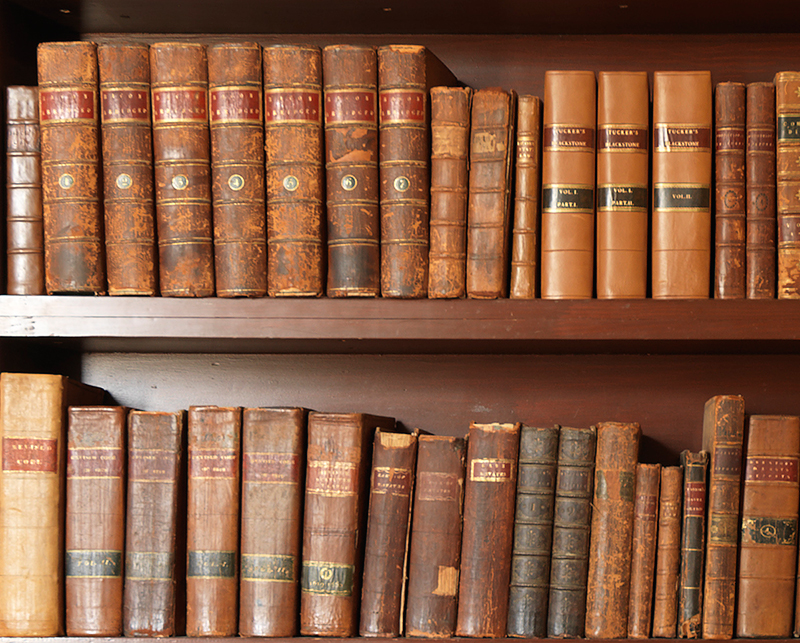
We must take a page from the lives and practices of many of the Founding Fathers, and return to the wisdom inherent in a broad education. We must once again pick up those books that they read, and then build on that timeless wisdom to further secure the future for the United States. We cannot continue as a nation unless we understand the very ideas that created our nation.
With that in mind, I sat down and studied the lists of books Jefferson is known to have owned, and compiled a list of five that should be of great interest to American patriots and scholars. In some cases, I put the book on my list because I wanted to read it. In other cases, it is because I have read it. In all cases, I will speculate on why Jefferson might have found a particular book to be of value, and how it might benefit you today.
In no particular order, I give you five books from Thomas Jefferson’s library that every American Patriot should read…
The Works of Josephus
The Antiquities of the Jews remains an important historical account of eyewitness accounts of first century CE Jewish and early Christian history. Flavius Josephus wrote extensively on civil and religious matters of the era, and it was only natural that a translated copy was in Jefferson’s library. But outside of the religious, and scholars of ancient history, why does Josephus matter to today’s American patriots?
There are a great many reasons, and most of them are cultural. Christianity has shaped and defined the western world, and by extension, so has the history of Israel and Jerusalem. Equally important is the fact that Josephus offers one of the rare well preserved contemporary histories of the era.
Let’s break this down a little further. Not everyone reading this is going to be religious, or even interested in ancient history. But we should all be interested in broadening our minds and stretching our understanding of things outside of our expertise. This is called a liberal arts education, and doesn’t have to be the twisted parody of education that modern day “progressives” make it. Jefferson, and the other Founders understood that a Patriot needed to be able to speak and understand a broad range of topics, including culture.
Imagine if you were sitting at the height of The Enlightenment like Jefferson was. This was a time when educated persons would devour books on everything from science to poetry, and then hold conversations with their fellows about it, while applying the ideas to the world around them. By reading Josephus, Jefferson could speak on history, Western civilization, comparative religion, and the way people lived their lives at the time.
A man like Jefferson could take those lessons and roll them into contemporary issues. He could take his understanding of the rise of Western civilization and use that to help shape his thinking on how nations and people should interact with each other. He could also just end the book with a better, richer understanding of our shared human experience, and be a better man for it at the end of the day.
Therefore, Josephus offers the Patriot a set of small tools that help them apply historical and cultural knowledge to the present day, and to better understand where we, as modern people came from. When you read his book, you, like Jefferson will be better educated on important parts of our past, and then can apply it to our future.
Locke on Government
You have read John Locke’s Treatises of Government haven’t you? If not, you need to order a copy right now. Why? Because Locke literally shaped the very founding ideas of some of our nation’s most important documents. In a sense, without Locke, there could be no United States.
Expounding in depth on the importance of Locke’s writings would take literal books. His writings heavily influenced the Declaration of Independence, and in fact, some parts of that document were lifted from Locke’s earlier works. He’s just that important to the creation of the United States.
He was also a philosopher, and as one of the leading thinkers during The Enlightenment, so profoundly shaped the world, that his impact is still felt to this day. Is it any wonder then Jefferson read Locke? Without Locke, there would be no concept of the pursuit of happiness, or so refined an idea of the individual and their relationship to government.
Now sitting here the the closing years of the second decade of the 21st century, you might ask yourself why you need to read the works of a man dead for several hundred years – even if he was important to the founding of this country. Well, that alone should do the trick, but if it isn’t, then we come back to the old saw of a broad education.
The American Revolution succeeded in part, because the minds behind it were some of the best of their era. This was a revolution lead by the rich and well educated, and they applied their high minded, and well founded ideals to the creation of this country. That means a strong understanding of philosophy, which means and understanding of Locke. Locke’s ideas on liberty, the individual, how government and the individual must interact, natural rights, and other related topics have directly or indirectly influenced almost, if not every popular, democratic revolution and movement since their publication.

I believe you simply cannot call yourself an American Patriot until you have sat down and read, and debated Locke’s works. Jefferson read them, and applied them heavily to the creation of our republic. You need to as well.
Shakespeare
I keep harping on the idea of a liberal arts education. Now, I’m partly biased. After all, I went to one of the most (in)famous small liberal arts colleges in the country. And I’ll tell you the truth, I’d do it again. Why? Because I was able to carve out the kind of education Jefferson espoused. Which brings us to Jefferson and Shakespeare.
We live in a world where our very language is still influenced by Shakespeare. But, you might retort “Shakespeare is so old, and writes in a funny way, and is boring.” Never mind the fact that without Shakespeare, Jefferson might not have been such a skilled orator. Or a skilled writer for that matter – Jefferson clearly understood the value of literature and poetry as a tool for conveying skillful use of the English language.
Shakespeare remains popular today, because the themes and topics he wrote about are still applicable to people. The base human condition changes little over time, and Shakespeare wrote to appeal to a popular audience. Jefferson read, and recommended Shakespeare as a tool for not only understanding humanity, but also in improving communications skill.
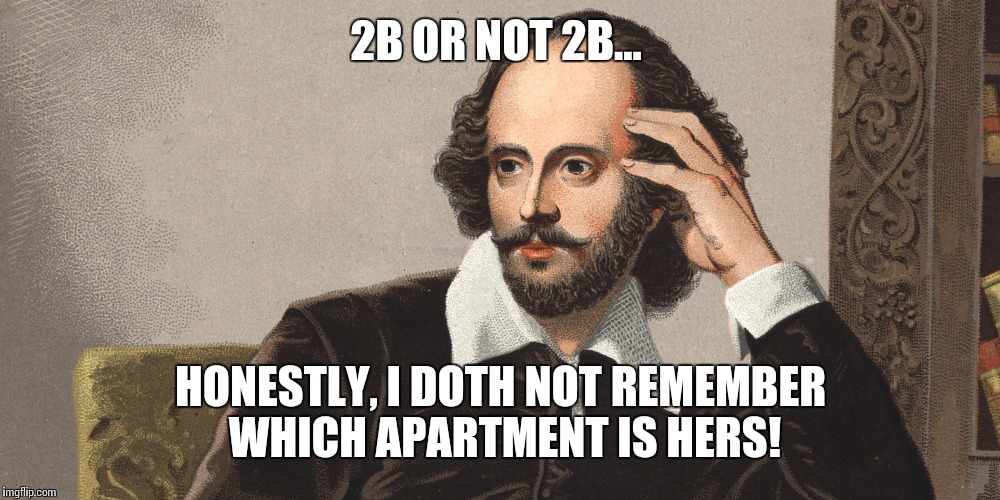
We can see in Jefferson’s writings that he was an extremely skillful, and well rounded writer. A good part of that comes from reading works like Shakespeare, and applying the lessons in humanity, communication and language to his day to day life.
So back to the present day, why should you have a copy of Shakespeare next to your AR-15? “Because Jefferson had one” should be enough of a reason. But more importantly, because books are a constant companion, and volumes of Shakespeare have been rich, well valued companions since their publication.
Shakespeare is an important part of our modern culture and society, and reading his plays will give you the same advantages they gave Jefferson. You will become a better speaker, a better writer, and gain deeper insight into the world around us. Plus, they just darn are good plays.
Paradise Lost
More poetry you say? Yes, yes indeed. And just like Shakespeare and Locke, John Milton’s Paradise Lost played important roles in shaping the founding of the United States. While at first glance, Milton appears to be writing about the Biblical fall of man, it is commonly read as a complex allegory on republicanism.
Taken on the surface – an epic poem about the fall of man and man’s relationship to God, it is understandable that Jefferson would be reading Milton. After all, it was and still is a very popular work, and has influenced how Christians understand their relationship with God. Digging deeper though, Jefferson and other Founders found much value in Paradise Lost, seeking to apply lessons on how people should direct their fate, and on the idea of a republican form of government.
Paradise Lost thus appears in Jefferson’s library as a commentary on religion, humanity, the pursuit of happiness, government, and to an extent, Enlightenment philosophy in general. This is pretty heavy stuff, and so is a lot of the interpretive commentary.
I admit, I haven’t read all of Paradise Lost, it’s sitting on my bookshelf waiting to be finished, but I keep getting distracted by other topics. I’m no great philosopher like Jefferson, but I understand the need to read many of the same key works that shape our society. For that reason, you the modern Patriot should also be reading Milton.
The American Revolution was a top down revolution, where the intellectual elite chose to revolt and lead the fight for American liberty. They wrapped their revolution in noble, well written ideas, and more than a few of them came from Milton. Pick up a copy of Paradise Lost, the worst thing that will happen is that you become better read.
Plutarch’s Illustrious Lives
Plutarch was a contemporary of Josephus, but wrote a radically different sort of work. Commonly known as Plutarch’s Lives, or Parallel Lives, Plutarch’s Lives of the Noble Greeks and Romans held an important place in Jefferson’s book collection. By now, you should be understanding that Jefferson read a lot of history and philosophy, but why was Plutarch important to him, and why should the modern Patriot care?
Turns out the Patriot should care a lot. Plutarch has been so influential on the understanding of virtue, statesmanship, strategy, tactics, and almost any other facet of human life, that at one time, it was only needed to briefly reference a line or two from Lives to understand a point being made.
The genius of Plutarch was that he wrote comparative biographies, and in doing so, allows the reader to debate the differences between two seemingly similar persons. This lets the reader eke out fine detail and subtle points between the two, and in turn, forcing a deeper understanding of the issue.
That Jefferson should read and recommend Plutarch is only natural. A deeper examination of the impact of Plutarch on American history would require much effort, and I’ve already linked to some very broad explanations on the importance of Plutarch. We come back to philosophy and a classically liberal way of thinking. Plutarch doesn’t just give us a list of noble virtues, influential quotes, and biographies of people. Instead, he gives us the tools to debate and consider the very archetypes of humanity, and how they apply in the Western world.
Jefferson is said to have read Plutarch with a journal in hand, so that he could jot down observations and questions, as he delved into the text. Plutarch gives us a solid grounding in Western thinking, ideal virtues, political thought, and shapes the mind through comparative study and debate.
The modern Patriot is therefore well served to read Plutarch – and in fact should, and do so regularly, and ideally start drawing parallels to the modern world. That is the true genius of Plutarch. He offers parallel lives and virtues, and then we parallel those lives and virtues to the world around us. And in doing so, we find solutions to many problems, and become better Americans along the way.
Conclusion
I didn’t touch on the many science books in Jefferson’s library. Most of them will be grossly out of date, simply due to the advance of scientific understanding. However, Jefferson had a great many books on all scientific matters of the era, from geology, to electricity. Today, the Patriot would be advised to imitate Jefferson and develop a solid grounding in science as well as arts, philosophy, history, and literature.
Remember, the Left likes to claim they are the party of science, and then purports to exclusively understand matters that require scientific study. A Patriot therefore needs to also have a firm, solid grasp on science, and scientific principles in order to strip away political garbage from science.
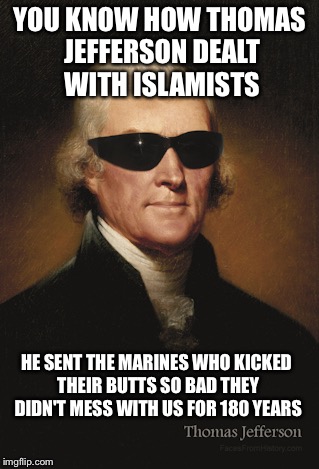
That said, Thomas Jefferson, and the Founding Fathers in general were extremely well read, and well educated men. They studied competing ideas, and even ideas they didn’t agree with. They understood not only that with which they agreed, but also that with which they did not agree. And that was what made them so powerful. They could speak with some measure of authority and understanding on a great many topics and issues, and especially on political and social matters, could do so from understanding multiple sides of the issue.
These five books that Thomas Jefferson read simply scratch the surface. One doesn’t have to emulate him exactly, and read exactly what he read. After all, we’ve had a lot of advancement and change in many areas since Jefferson’s time. But the core ideas and core categories that Jefferson recommends remain the same.
Today, they broadly form the idea of a liberal arts education, but it is increasingly hard to get that education in a formal institution, as the noble ideas of Western culture are thrown away for Marxist madness. But you, the modern American can also teach yourself. Buy and read a book. It is as important for defending liberty as your rifle. Perhaps even more so, because when people read books and debate ideas, there is less violence and more, real human progress. Jefferson would approve.

